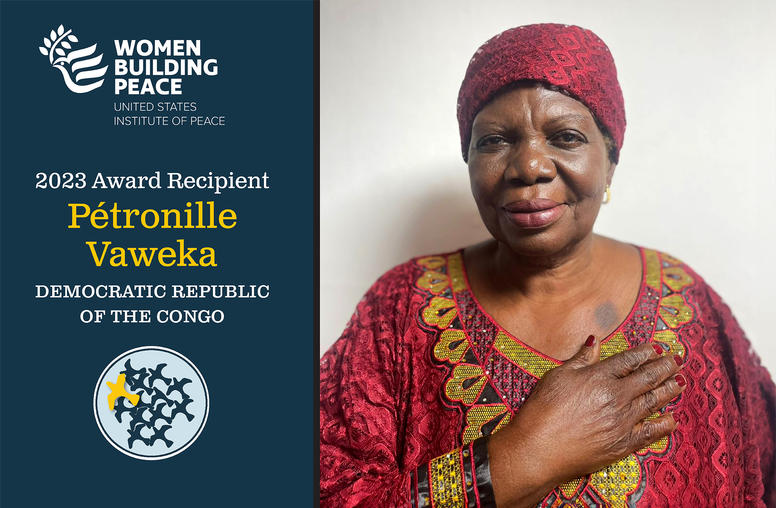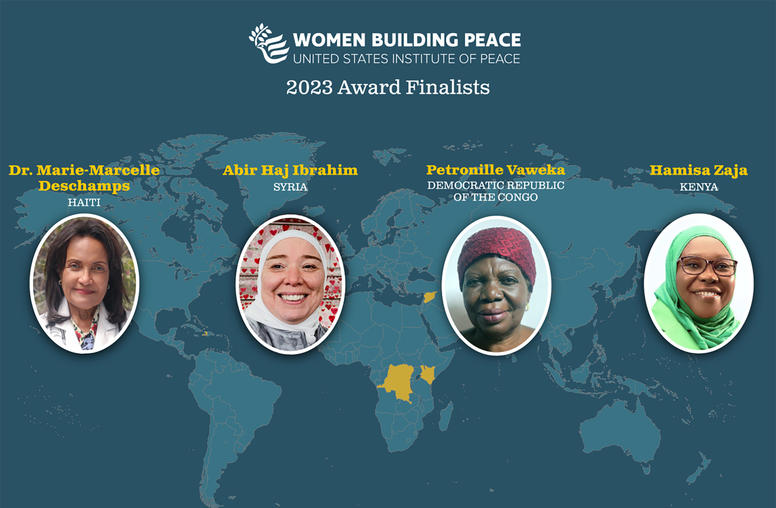Kirkuk: A Potential Iraq Hot Spot Needs U.S. Attention Now
Institute Newsbyte examines the possible conflicts arising in and around Kirkuk and possible non-violent solutions.
WASHINGTON--Kirkuk, the northern Iraq city and surrounding province that produces a large share of Iraq's oil, is a potential hot spot of interethnic tension in the aftermath of the Iraq war. Claimed historically by both Kurds (at one time a majority in the province) and Turkmen (at one time a majority in the city), Kirkuk has seen the displacement of much of its Kurdish, Turkmen, and Christian population by the Saddam Hussein regime, which sought to "Arabize" it by importing over 250,000 mostly Sunni Arabs from other parts of the country and transferring parts of the Kirkuk province hinterland to neighboring provinces with Arab majorities. Traditionally, relations among the ethnic groups in Kirkuk have not been violent, but the efforts of displaced and refugee Kurds and Turkmen (as well as smaller numbers of Christians) to return home and the likely flight of many Arabs could create incendiary conditions. The situation could be further complicated by efforts of either the Turkish Army or the Kurdish peshmerga (kurdish militias) to control the situation.
The U.S. Institute of Peace convened on February 19 and on March 17, 2003 small groups--including people of Iraqi Kurdish, Turkmen, and Arab origin and others expert on the area--to discuss the possible conflicts arising in and around Kirkuk and how they might be dealt with in a way that would avoid violence. This Newsbyte, prepared by Institute staff member Daniel Serwer, summarizes the views expressed.
Kirkuk Is Iraqi, and Its Status Should Be Resolved Without the Use of Force
While the immediate issues likely to arise in Kirkuk involve the return of displaced people and refugees, lurking in the background are longer-term political issues concerning the status of the city and province: Will they be part of any "Kurdish" federal unit within a post-Saddam Iraq? Who will have a majority in the city and province? The group meeting at the Institute agreed that resolution of the longer-term status issues should be postponed until the broader context has been clarified in post-conflict Iraq. All also agreed that Kirkuk should be part of a sovereign Iraq and that its status should be resolved without resort to the use of force and in a way that treats all its citizens fairly and equally under the law.
It is important that an interim governing authority be established in Kirkuk as quickly as possible that includes representation of all ethnic groups. A power-sharing arrangement will reduce mutual suspicions and reassure all concerned that nothing immediate will be done to determine Kirkuk's status. Consideration might also be given to a special administration under international supervision for Kirkuk, like the one created for Brcko in Bosnia, thus making it clear its status is still to be determined at an appropriate time in the future.
The Rush to Return Home Could Create Serious Problems
An orderly return of displaced people and refugees would be preferable to a chaotic one, but that will not be the natural or likely course of events. The displaced people, especially those living in miserable conditions in tent camps in Kurdish controlled areas of northern Iraq, will want to return home immediately. Many lack not only deeds or other proof of ownership of their property in Kirkuk but also lack even identity papers. Once they hear that the Arab occupiers of their property are fleeing, as many did in 1991 and are expected to do again, the displaced will seek to return immediately to recover physical possession of their property. Conflicts between individual claimants can be expected.
Kurds especially are expected to rush back to reclaim property, as many are living close by. Some Turkmen will also rush back, but many have relocated to more distant places (including Turkey). The rush of Kurds will look to some Turkmen (and possibly to Turkey) like an effort to claim Kirkuk for Kurdistan. This may precipitate intervention by Turkish military forces, and a response by the Kurdish peshmerga, creating serious problems for the U.S. military mission.
Public Security Is Job One
It will be impossible to prevent the return of displaced people to Kirkuk, but it would be desirable to slow it and make it as orderly as possible. The first requirement is to provide adequate public security in the city to prevent chaos, protect all segments of the population from revenge killings, and avoid an imposed solution to the status question.
Unfortunately, all the options for providing public security in the city are bad. Members of all the Iraqi ethnic groups are likely to prefer that U.S. military forces take on the task, but they will be reluctant to do so, at least until the oil fields are secured and the fighting is over throughout the country. In any event, the U.S. military is not trained or equipped for public security, and military police are in short supply. If there is agreement between the U.S. forces and the Kurdish political parties, then the Kurdish peshmerga might be useful in convincing displaced Kurds in the north not to rush home, but allowing them to take over the city would create a serious conflict with Turkey. Likewise, allowing Turkish security forces into Kirkuk would create a major conflict with the Kurds. Putting public security in the hands of the existing Iraqi police force (even if it is deprived of its top leadership and any obvious criminals) is not a good idea. Many of these police were involved in the ethnic cleansing process that created the displaced people and refugees, who can hardly be expected to accept placing their personal security back in the same hands. In any event, many of the existing Iraqi police will flee, fearing retribution.
The security of the Arabs of Kirkuk merits particular consideration. Many have lived there for more than a decade and have not played a prominent role in the Saddam regime. They need to be protected and to the extent possible given incentives not to flee. It should be made clear to Kurdish and Turkmen leaders that U.S. attitudes towards them will be determined by how they treat all minorities. Those Arabs who were moved in by Saddam, especially those who participated in regime repression, are more likely to flee and will need to be protected from revenge killings as well as provided with food and shelter.
The Right of Return and Property Rights are Number Two
While there is no preventing displaced people and refugees from returning home, giving them confidence that they will retain the right to do so and that their property rights will be protected may slow the rush and help to make return more orderly. This can be done with a clear, well-publicized U.S. statement that the right of return and the right to property will be guaranteed. Such a statement should include a commitment to set up a Property Commission similar to those that have proven critical in Bosnia and Kosovo in adjudicating property claims. The statement might apply countrywide, but it has particular significance in Kirkuk and a few other places where displacement has been massive.
The U.S. forces can also bolster the confidence of potential returnees by securing as rapidly as possible official documentation concerning identity and property and by making it known to the public that they are doing so.
Physical Facilities and Priorities Are Needed
Consideration should be given to two possibilities for increasing the physical facilities available for returnees. First, the many buildings controlled by the ruling Ba'ath party should be confiscated and made available as quickly as possible. Second, tent camps could be set up close to Kirkuk. Experience with such efforts elsewhere, however, suggests that people moving from tent camps will not readily occupy a new one closer to their homes, no incentives may need to be offered.
Priority for returning should go to those displaced people in tent camps in the north. They are living in miserable conditions and deserve first consideration.
Conclusions
Mistakes in the first days of a military intervention can take years to overcome. The U.S. military and its civilian partners should focus on Kirkuk because chaos there would disrupt the entire mission, putting at risk nearby oil fields, creating a regional conflict between Turkish and Kurdish military forces, and making governance much more difficult. Specific steps suggested include:
- The U.S. leadership should issue a statement saying that Kirkuk's status will not be decided by force in the immediate aftermath of the conflict but will only be taken up once national governing arrangements are clarified and within the context of Iraq's sovereignty and territorial integrity.
- Coupled with this statement should be a guarantee to displaced people and refugees that they will have the right to return home and to claim their property rights, and a plea for them to do so in an orderly way. The statement should also promise early creation of a Property Commission to adjudicate property disputes.
- The Kurdish authorities in northern Iraq should design an orderly system of return, including giving priority to those living in tent camps in northern Iraq.
- The U.S. leadership should design a power-sharing arrangement for Kirkuk and develop a viable system for public security, one that relies heavily on U.S. military forces in the immediate post-conflict period but seeks to turn over responsibility to Iraqis as quickly as possible.

